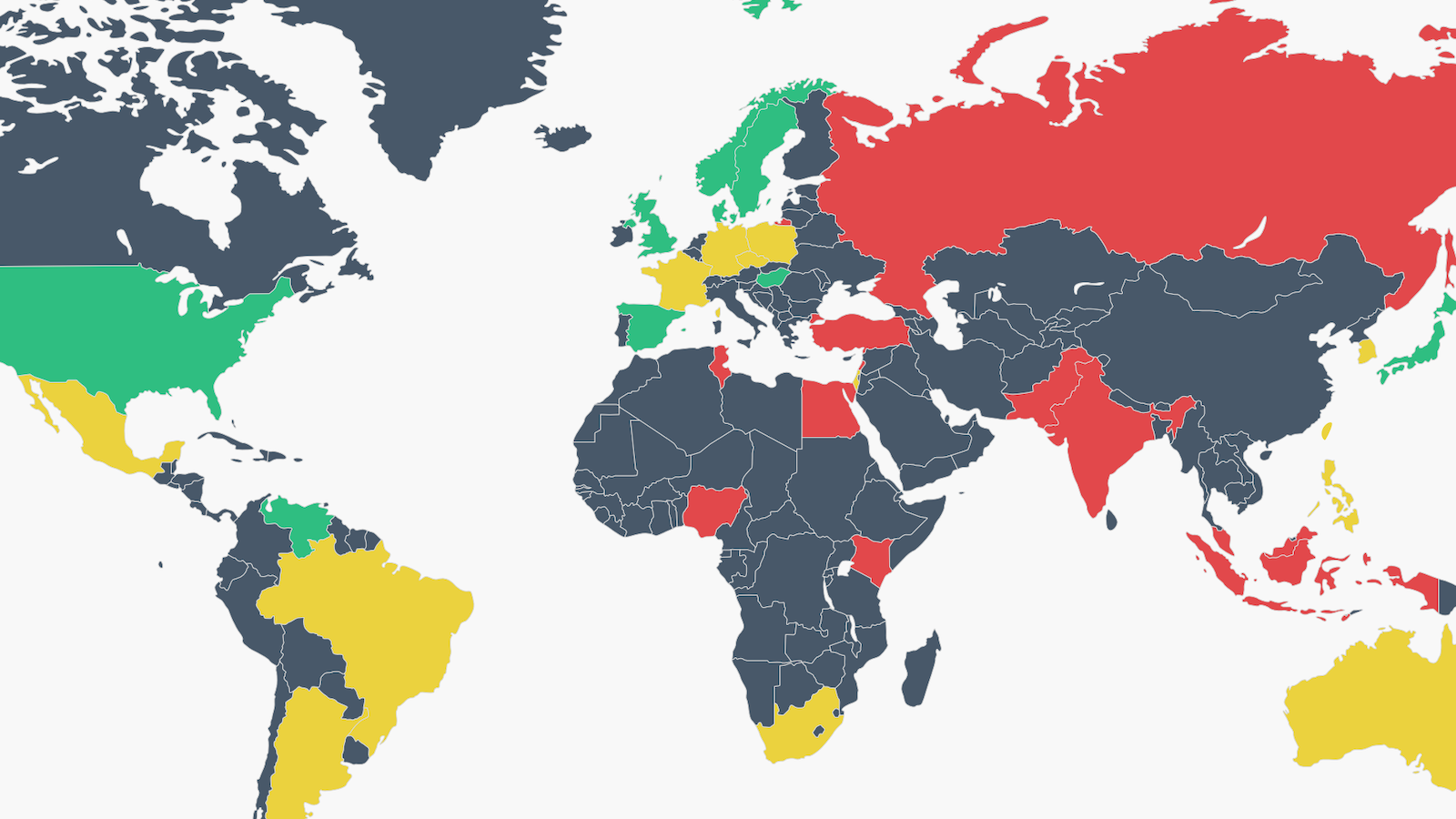Democratic socialism, once the ideology of a rare few American intellectuals and activists, has enjoyed a massive spike in popularity over the past three years. A great deal of the credit for this must go to Bernie Sanders, the self-described democratic socialist from Vermont whose presidential campaign brought unabashedly progressive ideas into the mainstream of American political discussion. Today, during his second run for president, ideas that he alone supported in 2016 are increasingly popular within his adopted party.
However, he remains alone in claiming the title of a socialist in a country where not everyone favors the term and fewer understand it. In an attempt to both explain his motivations and the ideology he promotes, he gave a speech at George Washington University explaining what democratic socialism means to him.
What democratic socialism means to Bernie Sanders: Redux
As we’ve discussed before, Bernie Sanders isn’t really a democratic socialist. His various policy proposals don’t call for a change in the ownership of the means of production, a key socialist demand, but instead for reforms to capitalism that would allow for it to work better for everybody and not merely the owners of capital. This worldview is similarly named “social democracy.”
While he flips the terms around, it doesn’t really get in the way of his arguments for why he thinks the economy needs a shake up.
Sanders framed this worldview in terms of economic rights and a sense of justice that he frequently references in his stump speech. In substance, this speech was very similar to one he gave in 2015 explaining what democratic socialism meant to him – but was delivered with a much more aggressive style befitting what he dubbed a “defining and pivotal moment” for the United States.
Having long since stepped away from ideas of nationalization, Sanders again invoked the New Deal as the template for his conception of democratic socialism. He very clearly argued that his notion of socialism means using the power of the government to empower the working class through programs such as universal health care, tuition-free education, and a job guarantee. He used this conception to propose that the United States already has socialism of a kind, but only for the rich, as evidenced by the bailouts, tax cuts, and subsidies that large corporations currently enjoy.
He ties these notions of using the government to make the economy work for the many rather than the few to many issues facing the world today, as he sees income inequality as a contributor to the problems of climate change, sexism, racism, and the rise of authoritarians around the world. This diagnosis of the situation is similar to that given by “real” socialists to his left, though they argue he doesn’t go far enough in his solutions.
“[Bernie Sanders’] notion of socialism means using the power of the government to empower the working class through programs such as universal health care, tuition-free education, and a job guarantee.”
What freedom means to Bernie Sanders: Positive liberty
In a telling moment in this speech, Sanders tied his notion of economic justice to the very idea of freedom. He rhetorically asked the audience if they were truly free if they couldn’t afford medicine, housing, or other necessities. “No,” he answered.
This shows an understanding of freedom as based on what a person can do rather than what they are prevented from doing. This distinction, first seriously considered by philosopher Isaiah Berlin in 1958, gives further context to Bernie’s idea of what democratic socialism is.
For Berlin, this capacity to act on your free will, which he dubbed “positive liberty,” was every bit as needed as the freedom from external interference, which he dubbed “negative liberty,” though the two could occasionally come into conflict when trying to sort out the details.
Looking at Sanders’ speech through this lens, his idea of democratic socialism can be seen as a way of using the power of the government to increase the positive liberty of the American people, giving them the capacity to fully utilize the freedoms they are so proud of. It is undoubtable, however, that many Americans, with their commitment to independence and self-reliance, will find this idea of freedom new and strange.
This is cool and all, but what is he going to do?
While this speech was big on examples of social-democratic programs in American history, he frequently referenced the New Deal of Franklin Roosevelt and invoked Harry Truman, Lyndon Johnson, and Martin Luther King Jr. for good measure, it was light on new, concrete policy proposals.
He did, however, promise that in the weeks to come he would introduce a series of proposals to create an “economic bill of rights” clearly modeled on the Second Bill of Rights FDR proposed in the footage seen above. Among these are the right to education, health care, housing, a clean environment, a job that pays a living wage, and a secure retirement.
Bernie Sanders’ unexpectedly popular run for president in 2016 has ignited debates in the United States that seemed unfathomable only a few years prior. His speech shows that his idea of what democratic socialism is remains based firmly in the social-democratic tradition of the New Deal and Great Society. It also shows that he knows that the discussion around ideology in the United States is partly a discussion of what we want freedom to look like – a question that will linger long after we define what socialism actually is.






